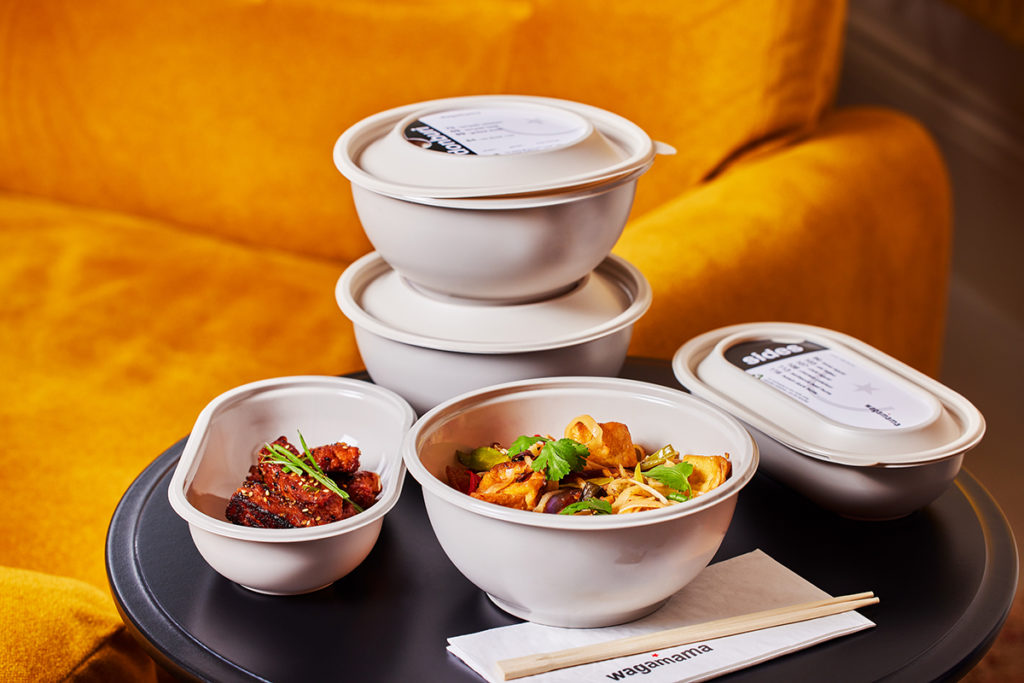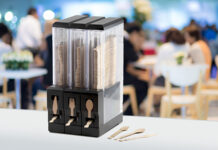WAGAMAMA has confirmed plans to replace more than eight million delivery bowls with new packaging using recyclable material.
The firm believes the decision will remove up to 330 tonnes of virgin plastic from the supply chain every year.
The new packaging, made from cPET, has been described as reducing the carbon footprint of the brand’s most popular dish – the katsu curry – by 62%.
The packaging will roll out from August 15 and will be live across all restaurants and delivery kitchens by October this year. Alongside the initiative, wagamama will also be launching its bowl return programme ‘Bowl Bank’.
wagamama CEO Thomas Heier said, “We are in a fortunate position that wagamama is much-loved by consumers, but we know this comes with a huge responsibility. Reducing our use of virgin plastics is a complicated mission – but one we have been dedicated to for four years. This has been driven by the belief that we needed do better for our guests, teams and the planet.
“Months of trial and error, conversations with leading experts, and research into UK waste streams has resulted in a moment where we can finally say we’re proud of our packaging. Proving small choices make for big change and sustainable progress doesn’t happen overnight. This is an exciting and overdue step for us but only the beginning.”
cPET is described as a food-safe material made from 70% recycled content. Its ‘excellent’ heat resistance is said to make it the ‘perfect material’ for delivering hot ramen. The remaining 30% of the packaging products will be plastics, required to maintain the structural integrity of the container.
wagamama added that it has also opted for a recyclable PP lid and is committed to working with project partners to get to a fully cPET solution within 18 months.
Simon Ellin, president of the UK Recycling Association who advised wagamama on the move to cPET, said, “It’s incredibly encouraging to see businesses like wagamama take accountability for their waste and go to great lengths to research and understand the complex nature of the UK recycling landscape. There’s so much misinformation and false claims about where rubbish goes, you really need to take the time to fully understand the problem.
“Assessing their business needs, I’m confident cPET is the most sustainable option available to them at this time, and I’m pleased to see they have invested in this option. They will be leading consumer behaviour change with their ‘Bowl Bank’ initiative, and it would be brilliant to see more return initiatives like this from their peers.”
Jo Barnard, creative director of design and innovation agency Morrama, commented, “It was great to work with wagamama as they were willing to take educated risks and ultimately allow their main sustainability objective to lead the project. We continuously balanced bettering guest and team experience with sustainability. We have reached a truly unique solution which reduces a massive amount of virgin plastic while still achieving the much loved ‘bowl to soul’ aesthetic wagamama is famous for.”













